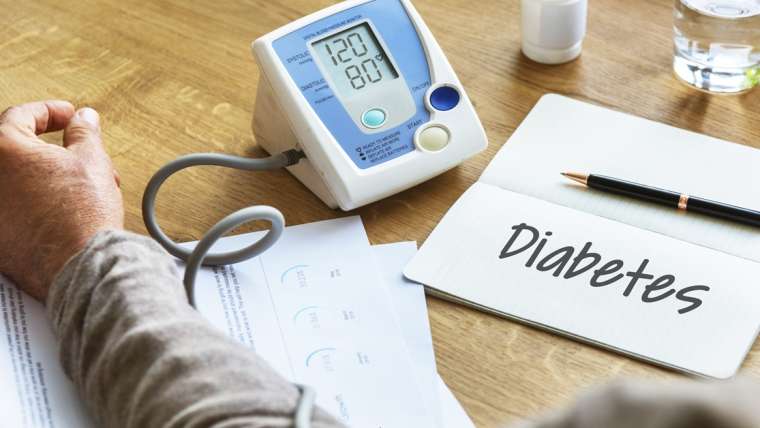
How to Protect Your Family from Environmental Health Risks in Texas
Texas is known for its extreme weather patterns, which include scorching heat, high humidity, and a significant allergen presence, making environmental health a critical concern for families. Whether it’s the blistering summers, unpredictable storms, or seasonal allergens, Texans face unique challenges when it comes to maintaining their health. Fortunately, by being proactive and adopting a few lifestyle changes, you can keep your family safe from environmental health risks.
Staying Hydrated to Combat the Heat
The Texas heat can be unforgiving, especially during the summer months when temperatures can soar above 100°F. This intense heat, combined with high humidity, can cause dehydration and heat-related illnesses such as heat exhaustion and heat stroke. Children and the elderly are particularly vulnerable to these conditions.
Tips to Stay Hydrated
-
Encourage your family to drink water throughout the day, even if they don’t feel thirsty. Avoid sugary drinks like soda or energy drinks, as they can dehydrate the body.
-
Carry water bottles during outings, especially if you plan on being outdoors for long periods.
-
Consider electrolyte drinks or coconut water for added hydration, particularly after physical activities.
Recognizing the Signs of Heat Exhaustion
Heat exhaustion is a serious condition that can escalate into heat stroke, which is a life-threatening emergency. Symptoms of heat exhaustion include heavy sweating, weakness, dizziness, nausea, and headaches. If any of these symptoms appear, it’s important to take immediate action.
How to Manage Heat Exhaustion
-
Move the affected person to a cooler area, preferably indoors or into the shade.
-
Have them lie down with their feet slightly elevated and drink cool (but not ice-cold) water slowly.
-
Apply cool, damp cloths to their skin or use a fan to help cool them down.
Reduce Exposure to Allergens
With Texas being home to a diverse range of allergens, including pollen, dust, and mold, many residents suffer from seasonal allergies. Spring and fall can be especially difficult due to high pollen counts, but allergens are present year-round. If your family suffers from allergies, taking steps to minimize exposure is essential.
Allergy Management Tips
-
Keep windows closed during high pollen seasons, and avoid outdoor activities during peak pollen times (early mornings and late evenings).
-
Use air purifiers inside your home to filter out allergens.
-
Wash your hands and shower after spending time outside to remove pollen from your skin and hair.
-
Consider allergy medications or speak to your family doctor in Murphy, TX, for personalized treatment options.
Protecting Your Family from Sun Exposure
Prolonged sun exposure in Texas can lead to sunburns, heatstroke, and an increased risk of skin cancer. It’s important to protect your family from the sun, particularly when engaging in outdoor activities.
Sun Safety Tips
-
Apply a broad-spectrum sunscreen with SPF 30 or higher, and reapply every two hours or after swimming or sweating.
-
Wear protective clothing such as hats, sunglasses, and long sleeves.
-
Avoid the sun between 10 a.m. and 4 p.m. when UV rays are the strongest.
-
Seek shade whenever possible and ensure children are properly shaded, especially in outdoor play areas.
Ensuring Safe Outdoor Activities
While the Texas weather can be challenging, outdoor activities are an important part of family life. From hiking to sports, the physical activity is beneficial, but you must take precautions to avoid heat-related illnesses and injuries.
Tips for Outdoor Safety
-
Take frequent breaks and find shade during outdoor activities to avoid overexertion.
-
Wear lightweight, breathable clothing, especially in light colors to reflect the sun’s heat.
-
Monitor children during outdoor play to ensure they’re staying hydrated and not overexerting themselves.
-
Always check the weather forecast before heading outside. If there are heat advisories, it’s best to stay indoors or engage in indoor activities.
Preparing for Storms and Severe Weather
In addition to heat and allergies, Texas is known for its severe storms and hurricanes. It’s crucial to be prepared for these unpredictable weather events to ensure your family’s safety.
Severe Weather Preparation Tips
-
Have an emergency kit with essential supplies, including water, food, medications, flashlights, batteries, and first aid supplies.
-
Create a family emergency plan, including evacuation routes and emergency contact numbers.
-
Stay informed about the weather by monitoring local news and weather apps. In the event of a storm, heed evacuation warnings and take shelter in a safe location.
Maintaining Good Indoor Air Quality
Indoor air quality can also be impacted by the environmental conditions outside. Dust, smoke, and humidity can worsen respiratory conditions, particularly for individuals with asthma or other lung-related issues.
Tips for Healthy Indoor Air
-
Regularly clean and replace HVAC filters in your home to improve air circulation.
-
Use dehumidifiers to prevent mold and mildew growth, which can exacerbate allergies and asthma.
-
Consider adding indoor plants that can naturally purify the air.
Monitoring Local Air Quality
Air quality can fluctuate in Texas, especially during wildfire season or due to heavy traffic. Poor air quality can lead to respiratory problems and exacerbate existing conditions like asthma or allergies.
How to Stay Informed
-
Check local air quality reports on websites or apps such as AirNow before heading outdoors.
-
If air quality is poor, limit outdoor activities, especially for children and elderly family members.
-
Keep windows closed during high pollution days and use air purifiers to ensure clean air indoors.
Conclusion: Protecting Your Family from Environmental Health Risks in Texas
Living in Texas means adjusting to the extremes of heat, humidity, allergens, and severe weather. However, with the right precautions and a proactive mindset, you can protect your family from the environmental health risks that come with this unique climate. Staying hydrated, managing allergies, practicing sun safety, and preparing for severe weather are just a few of the ways you can ensure your family stays healthy and safe.
By following these summer health tips and maintaining a mindful approach to Murphy, TX’s climate health, you can enjoy all that Texas has to offer while minimizing health risks. For further advice on specific health concerns, always consult with your family doctor, who can provide personalized care tailored to your family’s needs.
Useful Resources
-
Centers for Disease Control and Prevention (CDC) – Heat-Related Illnesses
-
American Lung Association – Air Quality & Health
-
Texas Department of State Health Services – Allergy Resources



